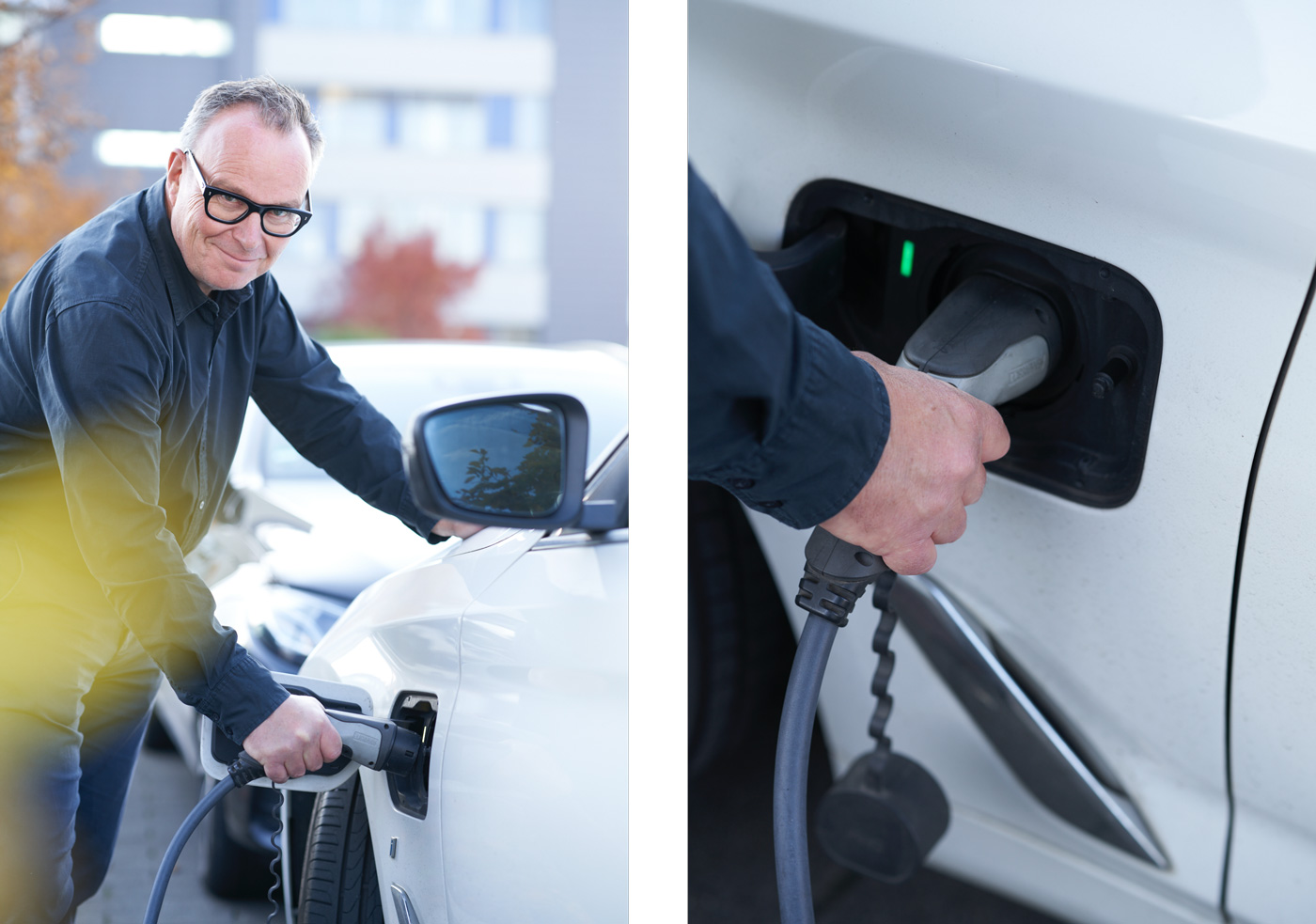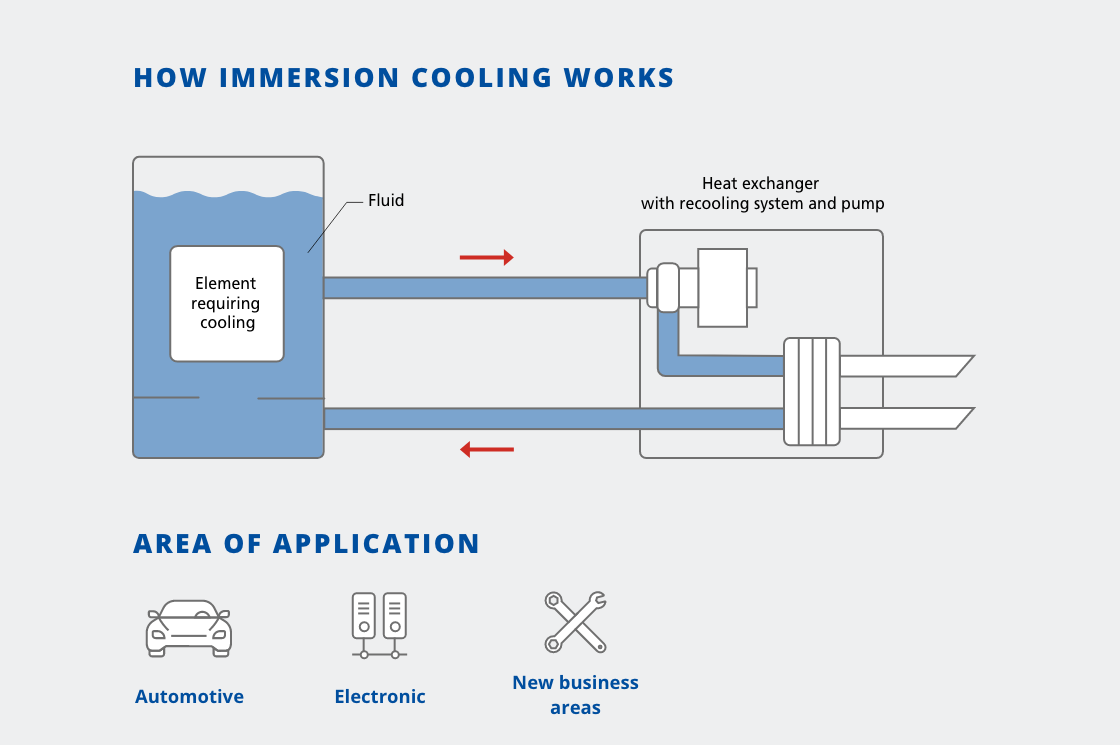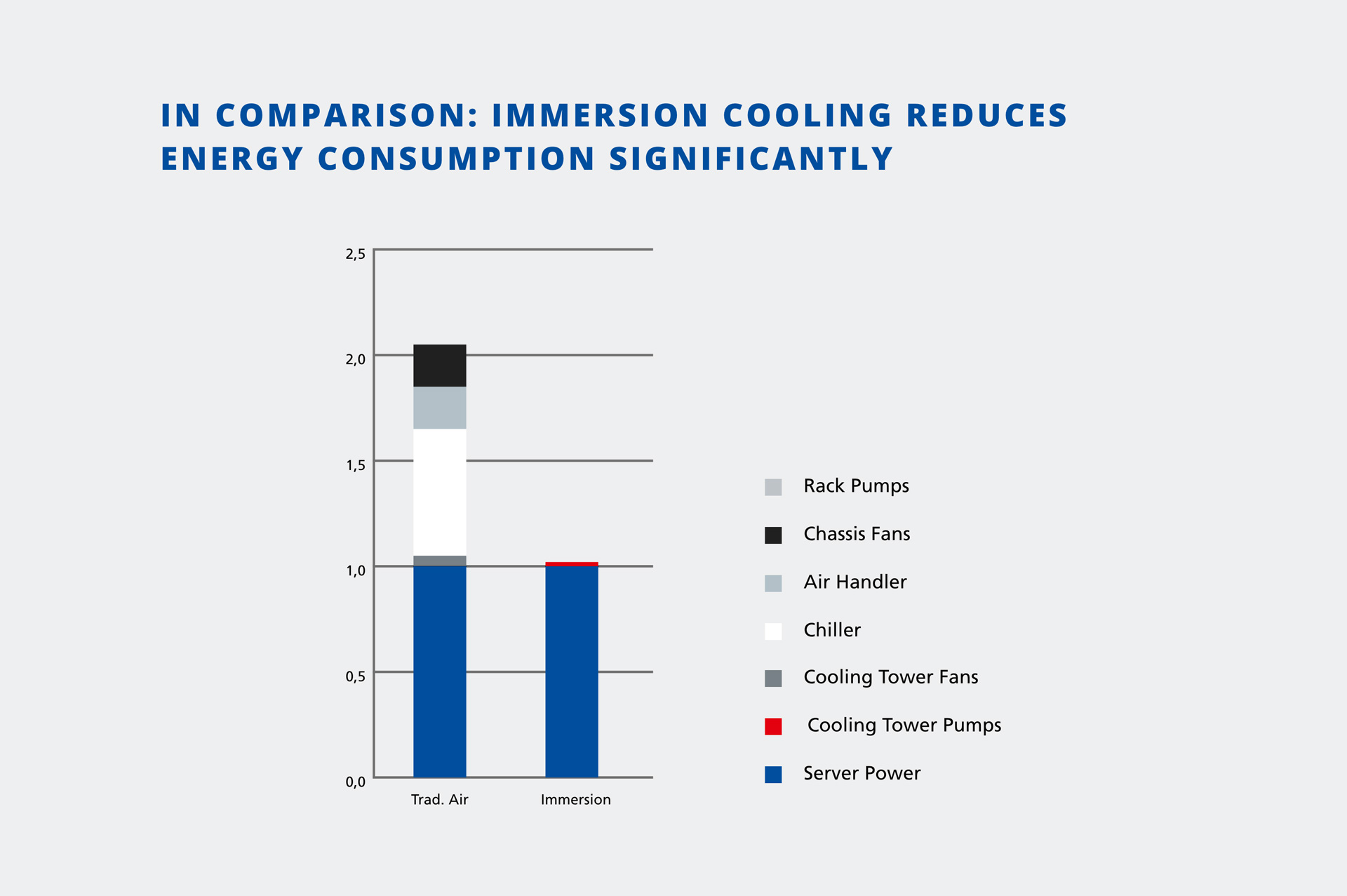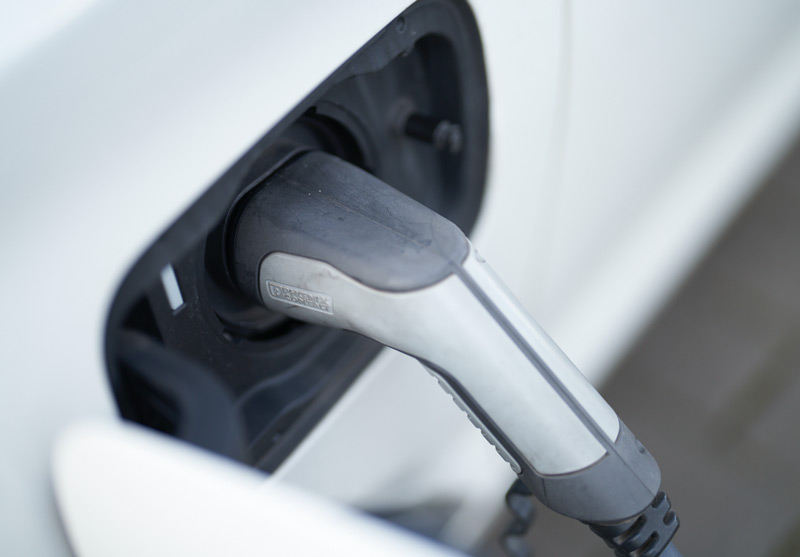Charging times of just ten minutes? This could soon become a reality for electric vehicles. It is all made possible by immersion cooling, in which technical components are fully submerged in FUCHS thermofluids. The process can also be used for heat management at data centers.
Lubricants not only ensure smooth running – they can also provide cooling. FUCHS PETROLUB is using this characteristic to future-proof its products in new business areas. The aim is for novel fluids to control the temperature of electric vehicle drive systems, as well as to cool equipment at large data centers. The company employs a new process here, in which complete modules are submerged in cooling fluids.

Thick oils, flowing greases, and a pungent scent of chemicals in the air – this is how many people envisage a lubricant manufacturer. However, this image is no longer accurate, at least at FUCHS PETROLUB. In fact, the company has been responding to the megatrends of sustainability and digitalization for years with innovative products. Working in modern laboratories, experts develop coolants and lubricants that set trends for the entire sector.
One key focus is e-mobility. The motors, power electronics, and high-voltage batteries in electric cars all get very hot. If the heat management system is not balanced correctly, an electric vehicle can even catch fire. "Effective cooling is therefore extremely important," comments Thomas Kraft, Business Development Manager E-Mobility.
His team has launched a development offensive to control the complex heat flows in electric cars even more effectively. To this end, the company is building a bridge between the old and the new automotive world. After all, the oils used in conventional vehicles have always been responsible for cooling in addition to their primary task of lubrication. The experience gained in this field can also be used for e-mobility.

The batteries – powerful yet highly sensitive
The expensive battery packs in electric vehicles are made up of many smaller cells and are particularly sensitive. "Ideally, they should always be kept in the optimum operating temperature range of between 20°C and 40°C," explains Kraft. This ensures the longest possible service life and the best vehicle range.

However, sticking within these limits is a complex task for thermal management systems - especially when an electric car is connected to a fast-charging station. Up to 350 kilowatts flow through the cable here, and this is only the beginning. "Charging capacities of 1,000 kilowatts are already in planning for electric trucks," comments Kraft. This extremely high output helps further reduce charging times – which could soon be as little as just ten minutes. Yet this fast charging generates a massive amount of heat, so conventional cooling processes can easily reach their limits here.

"Batteries in electric cars should always be kept at between 20°C and 40°C. Effective cooling is therefore extremely important in securing fast charging times and a long range."

Acid test in the lab
FUCHS is therefore investing in the new process of immersion cooling for electrical vehicles. This approach no longer uses any coolant lines. Instead, complete electronic modules are submerged in a special fluid, referred to as the thermofluid. This allows the temperature to be distributed more evenly, which makes the process more effective and affordable.

However, the thermofluids used must meet strict requirements. They should not attack the material, yet also be flame-retardant. Immersion cooling is also already being used in several supercars. The manufacturers use fluorinated coolants for this, which are critical in terms of handling during production, disposal, and leakage into the environment. If they escape into the atmosphere, these can have a significant negative impact on bodies of water through precipitation.
FUCHS PETROLUB is therefore working on alternatives. "We use traditional oils, which are made up of hydrocarbon chains and can be disposed of in an environmentally friendly way," comments Kraft. Working in secure laboratories, the experts from the Group research the properties that these thermofluids must fulfill. This is highly complex work. For example, short-chained hydrocarbons have a lower viscosity and can be pumped through the cooling system more efficiently. However, they are more flammable.

As such, the developers need to strike the best possible balance between these properties. To this end, they test new products under real world conditions and investigate how the battery packs react in the event of a fire when they have various fluids circulating around them. "Besides working perfectly, the safety of the product is our top priority," stresses Kraft, although the costs obviously also have to be reasonable.

More than just hot air
The development work is not limited just to e-mobility. In fact, immersion cooling can be used equally effectively in other fields. One such application is at data centers – more of which are constantly springing up worldwide.
Vast amounts of data flow continuously across network nodes or are stored in the cloud. This not only requires processing power, but also generates heat, which in turn drives up energy consumption. According to a recent survey undertaken by the Borderstep Institute for Innovation and Sustainability, the power requirements of servers and data centers in Germany rose by seven percent to 16 billion kilowatt hours in 2020 alone. The trend is for this to continue rising further.

Until now, driven air produced by strong fans has been used to cool the increasingly powerful servers and routers at data centers. But this will soon no longer be sufficient. The industry is therefore looking for new heat management options. "Immersion cooling can be an important part of the solution," comments David Baier, Head of Global Product Management Industrial Oils.

Closely networked
He is therefore talking with operators of data centers, as well as their suppliers and hardware manufacturers. After all, the coolants used and the technical components need to be compatible with one another. "Under no circumstances may the fluids be conductive," comments Baier. They should not damage the electronics and must be capable of effective distribution. Only when these prerequisites are met can entire servers be submerged in oil.



The Polish subsidiary of FUCHS is the trailblazer in immersion cooling for data technology. Together with a pioneering customer and experts from a German FUCHS subsidiary, the company has already developed a coolant for kryptomining devices, i.e. for creating virtual currency such as bitcoins. This complex process consumes a huge amount of electricity. "Immersion cooling allows us to reduce the energy consumption significantly," comments Bogdan Mista, FUCHS Product Manager in Poland. The pilot project also delivered some unanticipated findings. For example, the customer placed great emphasis on ensuring a neutral smell of the thermofluids, which is typically only a secondary requirement in other sectors.

"Immersion cooling can be an important part of the solution."
Immersion cooling for data centers and server farms is still in its infancy. But the development work is continuing. In future, the heat generated could potentially also be used to heat rooms or water. Selecting the right coolant is clearly crucial here. The experts from FUCHS have already taken up the idea.


